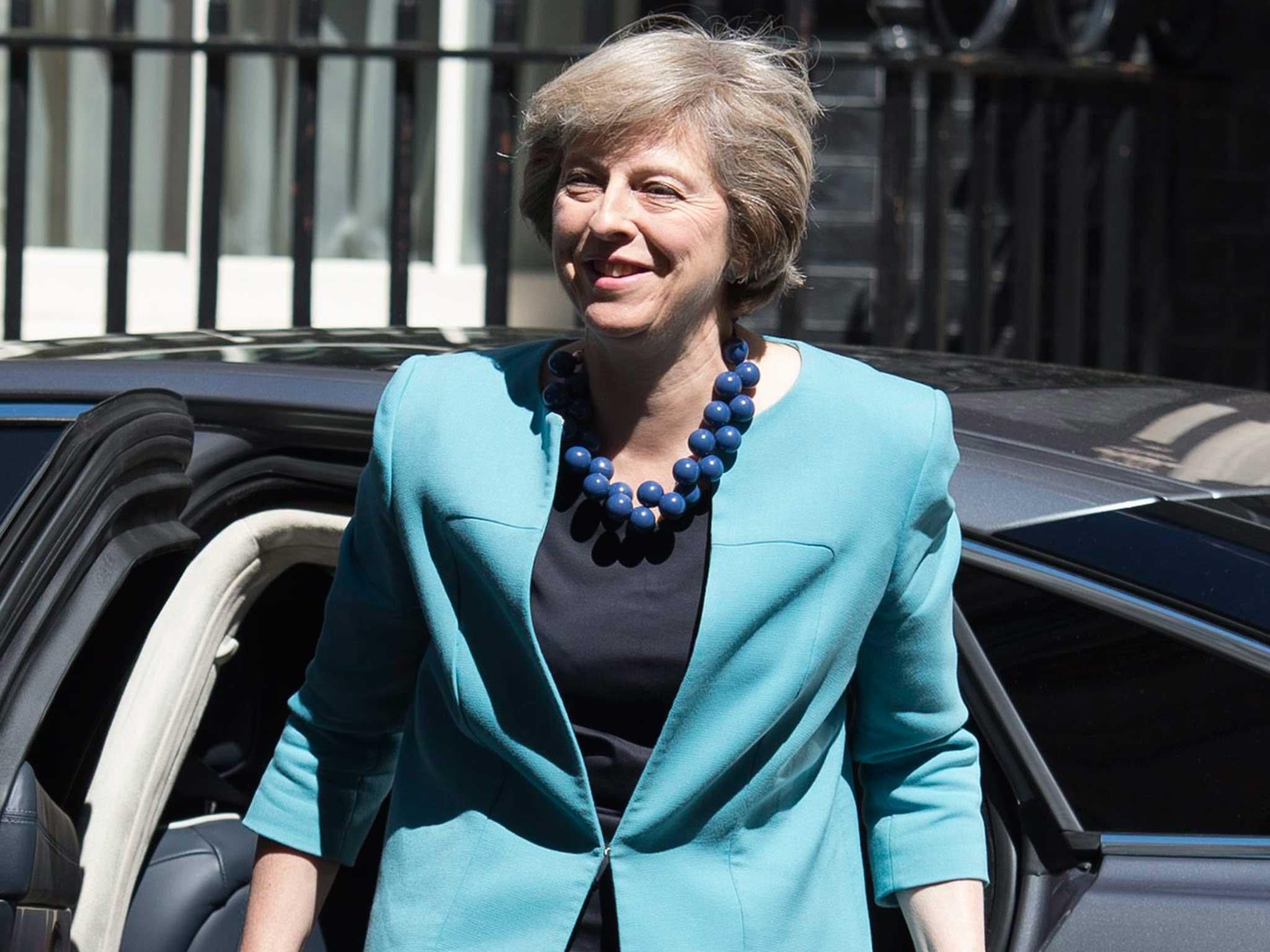Theresa May has completed her first task – a creative act of butchery
The potential for tension between new Cabinet members to descend into squalid squabbling is plain to see

Your support helps us to tell the story
From reproductive rights to climate change to Big Tech, The Independent is on the ground when the story is developing. Whether it's investigating the financials of Elon Musk's pro-Trump PAC or producing our latest documentary, 'The A Word', which shines a light on the American women fighting for reproductive rights, we know how important it is to parse out the facts from the messaging.
At such a critical moment in US history, we need reporters on the ground. Your donation allows us to keep sending journalists to speak to both sides of the story.
The Independent is trusted by Americans across the entire political spectrum. And unlike many other quality news outlets, we choose not to lock Americans out of our reporting and analysis with paywalls. We believe quality journalism should be available to everyone, paid for by those who can afford it.
Your support makes all the difference.A prime minister, so the old saying goes, needs to be a good butcher. If so, then Theresa May has demonstrated a preternatural skill with the cleaver.
With little sentimentality she has chopped from her Cabinet most of the “Notting Hill set”, and more besides, promoted able female ministers, and offered up a few surprises.
The greatest of these is, of course, the ascent of Boris Johnson to the Foreign and Commonwealth Office. Where his predecessor, Philip Hammond, was quietly spoken and unflashy (dubbed, ironically, “Box Office Phil” by Westminster journalists), Mr Johnson is, as we all know, pure showbiz. He will have to manoeuvre himself past some embarrassing, not to say offensive, remarks in the past, not least about President Obama’s Kenyan heritage.
Ms May has parked a still-dangerous rival in a job where he will have his hands full and will have to take partial responsibility for the Brexit deal. She has deftly neutralised him.
After creating a new Brexit department, headed by David Davis, and reviving the Department of Trade with Liam Fox at its head, Ms May will need to be clear with these three powerful personalities about what their responsibilities are. The potential for creative tension to turn into squalid squabbling is plain to see.
They are, though, all Brexiteers – at least nominally – which will appease those in her party and outside who are looking for signs of betrayal of the referendum verdict. That said, it is the prime minister herself who will be in charge of Brexit. We can only hope she will follow David Cameron’s advice to work for as close a relationship as possible with the EU and “proper access” to the single market. Nothing matters more to the prosperity of the British people than that.
The departures of George Osborne and Michael Gove, as well as Mr Cameron, mark an obvious break with the past; thus far, Ms May seems to want to respond to the tensions in the nation revealed in the referendum and the sense of public anger about inequality and unfairness in society. However, Philip Hammond, who covered the Treasury brief in opposition and long had his sights on Number 11, will find it difficult to deliver Ms May's vision of social cohesion while public finances come under renewed pressure.
Post-Brexit, tax revenues will slow and public spending on social security will rise. The UK has already lost its AAA rating, limiting its ability to borrow as cheaply as previously. Still, we will be spared the “emergency budget” threatened by George Osborne in the referendum campaign, which only confirms how foolish and counter-productive it was of the former Chancellor to use it to stoke up “Project Fear”.
Damian Green, on the left of his party, should prove a humane Work and Pensions Secretary, but he will find it even more difficult than his predecessors to deliver cuts to his budget.
This is also a feminised government, far more reflective of women’s role in society and much better balanced than any of its predecessors.
While losing the pragmatic Nicky Morgan from education may have disappointed some, her replacement Justine Greening, together with Amber Rudd at the Home Office, Liz Truss at Justice, Karen Bradley at Culture and Priti Patel at International Development, are all straightforwardly good appointments irrespective of their gender. Given her recent behaviour, Andrea Leadsom can count herself lucky to have got into the cabinet.
In her first substantial act as Prime Minister, Ms May has imposed her will on the highest echelons of her party, cleverly managed the Brexiteers, and changed the face of the Conservative government: a most creative act of butchery.
Join our commenting forum
Join thought-provoking conversations, follow other Independent readers and see their replies
Comments